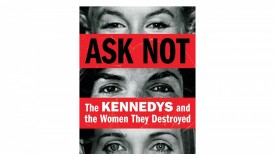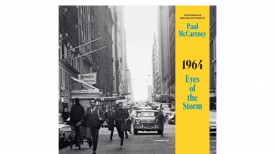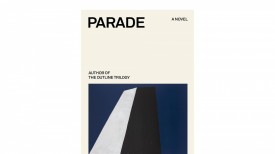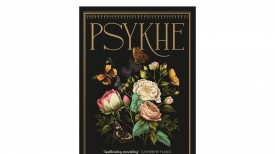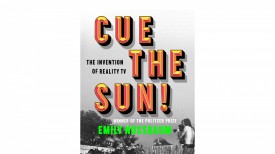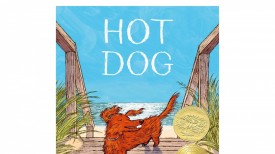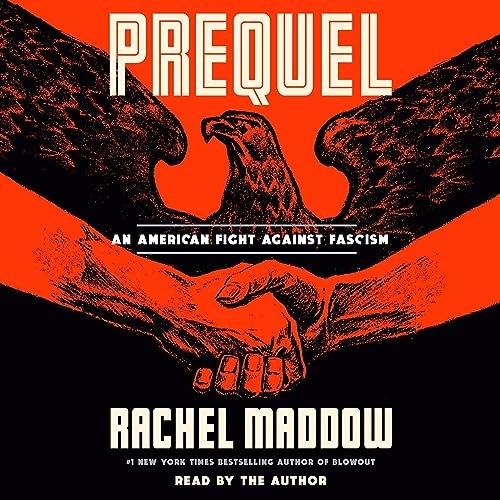
(Photo : Crown)
Frank Housh
As the Greatest Generation's last members fade into history - fewer than 1% of the country's 16.1 million veterans of World War II are still alive - left-leaning journalist Rachel Maddow is the latest writer to examine the myth of an unshakeable American opposition to Nazi German before the December 7, 1941 bombing of Pearl Harbor, which swept the United States in the global conflict.
In "Prequel," Maddow's fourth book, she describes a breadth and depth of U.S. support for Nazi Germany up until the last days of 1941. Nazi Germany had millions of ideological admirers in the United States after Hitler rose to power in 1933. These American Nazis openly advocated the dissolution of the republic in favor of a fascist, Christian Nationalist nation. American politics in the 1930s and 1940s featured a rogues' gallery of Christian fascists, Hitler wannabes, and bent politicians spreading hateful lies about the Jewish menace, Bolshevism, and what we now call the Deep State. While large pro-Nazi and isolationist groups like the German-American Bund and America First were the most public manifestations of sympathy toward Hitler, Maddow fills her book with blunt, revisionist observations about how history has mitigated the intense antisemitism and religious fascism of those times. Aviation hero Charles Lindbergh, radio host Father Charles Coughlin and U.S. International Olympic Committee member Avery Brundage all made public remarks in favor of Hitler and made no secret of their anti-Semitic views.
Maddow latches on to some particular aspects of both American pro-Nazi figures and the Third Reich's calculated, if ultimately ineffective propaganda efforts to sway sympathies to Germany. While it is little known today, the Christian Front, an avowedly anti-Semitic New York group founded in 1938, devised a well-funded, well-planned and very violent blueprint for insurrection, including improvised explosive devices which would "incite the Jews and Communists to riot," then be destroyed in street battles by ersatz Brownshirts posing as "country gentlemen" at their Delaware Valley club.
"Historians have generally assessed this Christian Front episode as an insignificant blip. . . [t]he press of the day seemed to dismiss these folks as 'crackpots' who didn't have any real intent for lethality for any kind of systematic overthrow of the U.S. government. It was, as one journalist put it, a 'playful plot.'"
The core of Maddow's research focuses on German efforts to nurture and expand the already substantial pro-German, non-interventionist sentiment in the United States, and the direct involvement of Joseph Goebbels, the Reich Minister of Propaganda. Indeed, the U.S. headquarters for Goebbels' operation was in the U.S. Senate itself. Minnesota Sen. Ernest Lundeen, a former Republican who was elected in 1936 on the leftist Minnesota Farmer-Labor Party ticket, gave German operatives free rein - and free postage - by using Congress' franking privileges, which allowed legislators to mail constituents without paying for stamps.
Maddow makes clear that that Lundeen was controlled by one George Sylvester Viereck, a German-American author and infamous Nazi agent and propagandist. The "promiscuous use of [the] frank" by Nazi agents was eventually exposed when bags of blank, franked Senate envelopes were found in the offices of America First and other isolationist groups sending out Nazi propaganda supplied by the German Embassy.
Maddow also tells of brave Americans like journalist John C. Metcalfe, who in the face of ambivalent responses from law enforcement, infiltrated U.S. Nazi groups at great risk to himself, and later exposed fascist insurrection plans in his testimony before Congress.
"Prequel" concludes with an account of Viereck's torturous legal path, which included a 1942 conviction for failing to register as a Nazi agent, and the overturning of his conviction by the Supreme Court in 1943. While Viereck was imprisoned again that year, he was paroled in 1947. Meanwhile, prosecutor and Assistant Attorney General O. John Rogge was professionally sidelined after the war as an overzealous crusader. Government appeasement of white supremacy seems the clear subtext, but Maddow makes the point obliquely at best.
Maddow unnervingly mirrors the political trials of 2023 while chronicling Viereck's sedition trial, which was filled with clownish behavior by defense counsel, who accused the judge and prosecutor of being errand boys for the Jewish Conspiracy and repeatedly moving the Czarist Russia-era anti-Semitic tract "The 12 Protocols of the Elders of Zion" into evidence.
While the author does not explicitly raise any of the obvious parallels between the interwar U.S. Nazi movement and MAGA, she clearly encourages the reader to make these conclusions, hence the title. Maddow's prose isn't subtle, but her research is solid, making "Prequel," something more than a work of history. It's an urgent warning that the road ahead has been well traveled.
PREQUEL: AN AMERICAN FIGHT AGAINST FASCISM | By Rachel Maddow | Crown | 416 pp. | $32
Frank Housh is a writer based in upstate New York.
© 2023 Books & Review All rights reserved.
Popular Now
1
Books to Read After 'Fourth Wing': Top Picks for Fantasy and Romantasy Fans

2
‘The Secret Public’ by Jon Savage Book Review: An Insightful Look Into the LGBTQ Influence

3
Stephanie Regalado's 'If They Only Knew' Column Is Now A Book, Unleashing 60 Anonymous True Stories to Empower Women

4
'No Wire Hangers' Scene That Almost Did Not Happen: New Book Reveals Faye Dunaway's Struggles

5
Rare First Edition of Aphra Behn's Novel 'Oroonoko' Discovered in Kent: A Historic Literary Find

Latest Stories
Book Reviews
‘The Secret Public’ by Jon Savage Book Review: An Insightful Look Into the LGBTQ Influence

Book News
Stephanie Regalado's 'If They Only Knew' Column Is Now A Book, Unleashing 60 Anonymous True Stories to Empower Women

Book News
'No Wire Hangers' Scene That Almost Did Not Happen: New Book Reveals Faye Dunaway's Struggles

Book Reviews
‘The Perfect Couple’ by Elin Hilderbrand Book Review: A Captivating Summer Mystery

Book News
New Book ‘The Franchise’ Reveals Penguins President Kyle Dubas’ ‘Biggest Mistake’ as Maple Leafs GM

